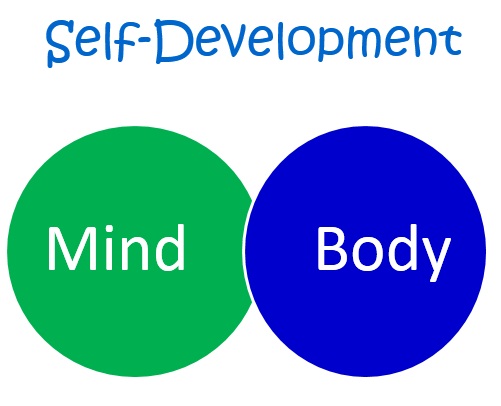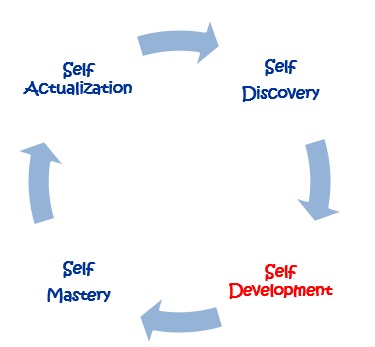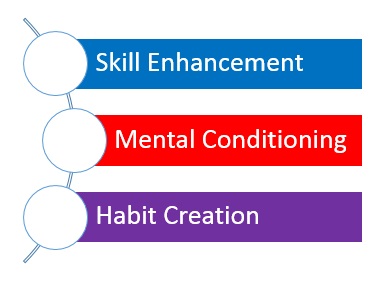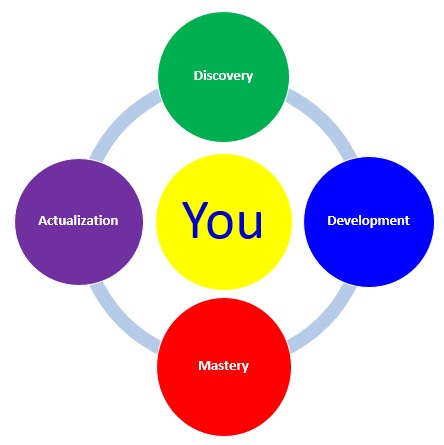Self Development
Self-Development is a process of consciously improving oneself in various aspects of his or her life. It is the conscious pursuit of personal growth by improving personal skills, competencies, talents, and knowledge. However, the key component to self-development is the growth of one’s personal self in order to seek self-fulfillment and proactively reach your fullest potential.
Self-development and personal growth is a lifelong process which enables you to assess your abilities, to set goals, and then take action to help you to achieve those goals and to maximize your potential. The ultimate goal of self-development is to be a self-fulfilled person. That means living consciously at your full potential and reaching true happiness in your life.
We divide self-development into three segments:
- Skill Enhancement
- Mental Conditioning
- Habit Creation
Skill Enhancement
Skill enhancement is the development of personal skills, abilities, and competencies. It encompasses both interpersonal and personal effectiveness skills. Interpersonal skills focuses on relationships and interactions with others. It includes how to communicate and work with others, as well as how to lead others. Personal effectiveness centers on skills that can be applied independent of other people. It includes skills such as goal setting, problem solving, time management, and stress management.
Mental Conditioning
Mental conditioning is the process of building and strengthening our minds. It allows us to maintain a positive focus on our goals and objectives through imagery, visualization, and other techniques. It also allows us to build positive images and feeling about ourselves to increase our self-image, self-esteem and self-confidence. Mental conditioning techniques encompasses relaxation to help relieve anxiety and tension to improve performance through better concentration and focus.
Habit Creation
Habit creation is the conscious establishment of behaviors or thoughts in an attempt to improve ourselves. Habits are those behaviors or tendencies that you do automatically without thinking or consciously intending. Our habits usually direct our actions, our reactions, our decision, and even our thoughts. The creation of positive habits can help you develop a more productive and enriched life.
The Process of Self Development
The process of self-development begins prior to any actual steps in the development of skills, talents, or competencies. It begins with self-awareness and self-discovery. You first must find out where you are in order to move on from there. Self-discovery gives you insightful understanding of your personality, values, tendencies, and beliefs. It also gives you insight into what you want to do or the person you want to become.
After you discover who you are and where you are headed, you begin the actual steps in the improvement process by assessing your current skills, talents, and competencies.
Self-assessment is the process of gathering information about one’s own aptitude, skills, competencies, and talents and critically reviewing the quality of his or her performance and abilities. Self-Assessment is different from self-awareness and self-discovery in that awareness and discovery is simply a recognition of something or knowing something exists. Assessment, on the other hand, is determining or measuring an amount, value, importance, extent, or rate of something.
After the completion of a self-assessment, you are better able to set and reach your goals. Self-assessment gives you the information needed to create an effective development plan. A development plan involves the making of goals or benchmarks that help define the path that you intend to follow. By knowing what specific skills you need to develop or work on, you are able to focus your attention on those skills and making yourself more proficient at them. You force yourself to focus on the acquisition of knowledge and to organize your resources, thus allowing you to become more organized and effective. As you become more effective, you can improve both your abilities and ultimately your performance.
As your performance increases, you achieve more and your self-confidence increases. An increased self-confidence leads to being happier and feeling more fulfilled in life. You ultimately reach self-actualization and realization of your full potential.
Elements of Self Development
Self-concepts and Self-constructs
Self-concept
Self-identity
Self-image
Self-confidence
Building Self-confidence
Self-efficacy
Self-esteem
Self Development vs. Self Improvement
Although often used interchangeable, we like to differentiate self-development from self-improvement (or self-help). Unlike self-development, self-improvement usually is used to refer to something you do to improve an aspect of your life in which you are struggling. Basically, it highlights or emphasizes your weaknesses. For example, self-improvement topics may include building self-esteem, getting organized. These are all worthy improvements to one’s self, but the focus is on a person’s weakness (i.e. low self-esteem, unorganized, etc…), not a strength or good quality.
Self-development, on the other hand, focuses on personal growth in all aspects of your life. It targets areas of both strength and weakness. It does not just focus on areas of weaknesses. Self-development will address areas of weakness to make them less challenging, but is not the focus. It really focuses on building your talents and areas that interest you so that you reach your fullest potential and feel self fulfilled. For example, if you are really good at painting or music, self-development would help you to further develop that strength.
Self-development includes activities that improve skills, develop talents, build competencies, enhance quality of life, and ultimately contribute to the realization of dreams and aspirations.





